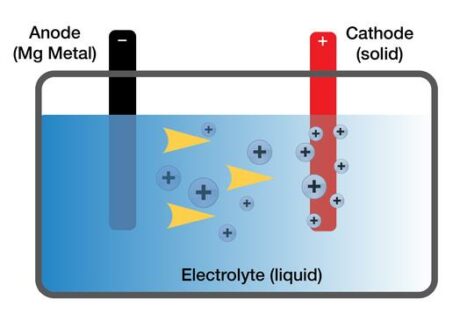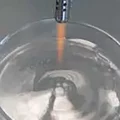The key to using magnesium in next generation electric vehicle batteries has been discovered by scientists at the Toyota Research Institute of North America (TRINA).
The breakthrough came as Toyota principal scientist and chemical engineer Rana Mohtadi realised her hydrogen storage material might solve magnesium-based battery issues.
Researchers took magnesium borohydride and its derivative boron cluster compounds—a material used in hydrogen storage— and made it practical for magnesium battery chemistry.
Mohtadi was researching hydrogen storage materials and their application to fuel cell technology when the breakthrough came.
Mohtadi told BBB the materials constituted only simple ionic magnesium salts that were halogen free, and were compatible with the chemistry of magnesium metal so it would not corrode the battery components.
However, she sounded a word of caution, saying: “A magnesium battery still has other challenges related to finding practical cathodes, so this technology is still in the research stage and may need more than 20 years to become practical.”
Magnesium metal is believed to be a safer and more energy-dense alternative to current lithium battery technology, but research has been limited because a magnesium-friendly electrolyte did not exist.
Fellow researcher Oscar Tutusaus, who collaborated with Mohtadi on the discovery, said: “We want to make this electrolyte a standard for magnesium batteries… and we want other researchers to develop it further so these batteries can see the light of day.”
The finding were published in German chemistry publication Angewandte Chemie International Edition.












